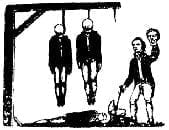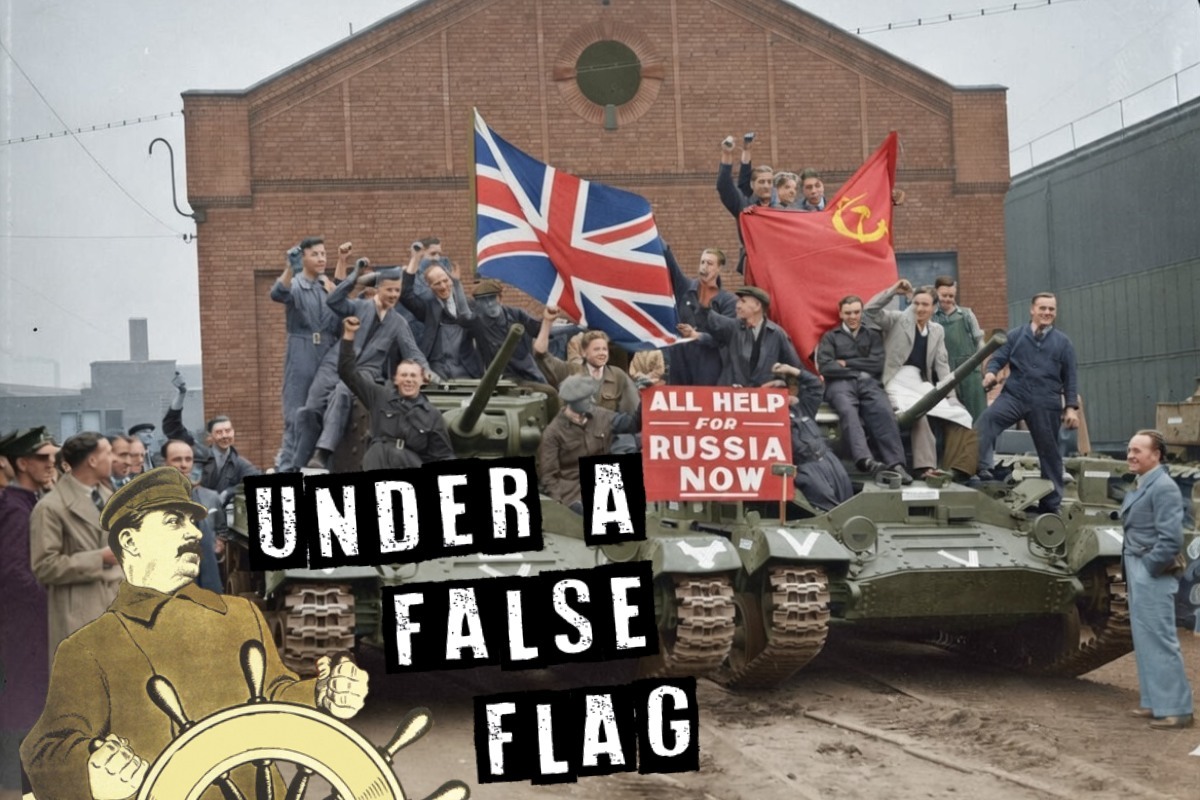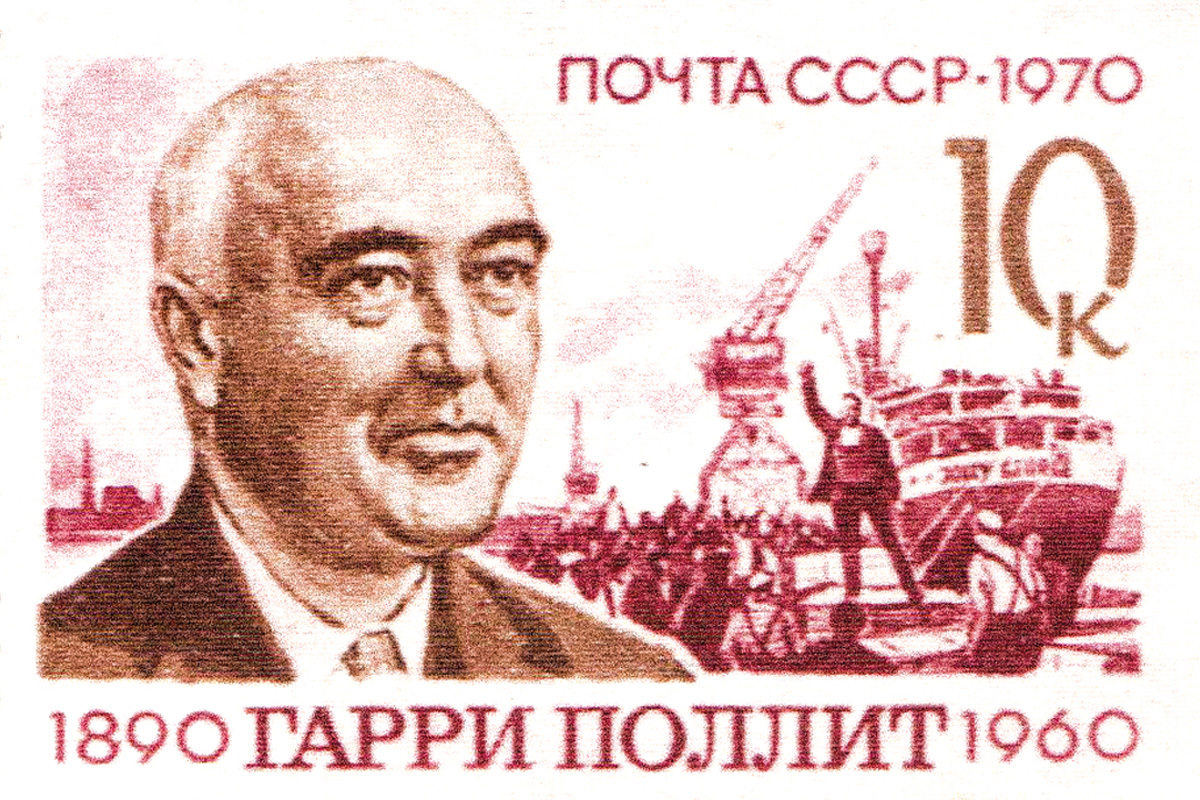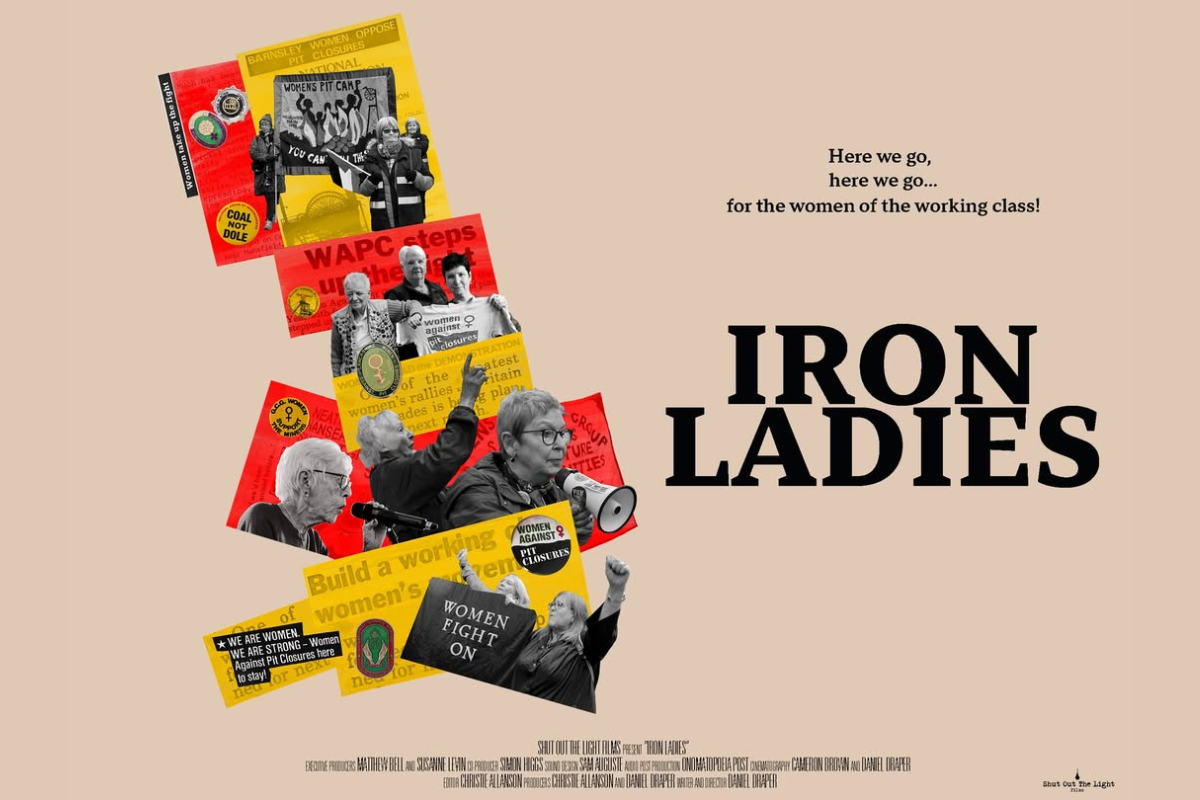Pentrich is a small settlement a few miles north-west of Ripley,
just inside the eastern border of Derbyshire. It is a quiet place these days
but in 1817 it had a pub, the White Horse, in which was fomented a plot to
overthrow the Government of the day.
Wars kill large
numbers of people. These do not usually include the capitalists and their toadying politicians whose interests and
self-seeking activities caused the war in the first place. Wars also
create demand – the economy booms and while it lasts there may even be full
employment, plenty of overtime and workers with spare money to spend.
Hard-faced men supplying the war effort do even better.
When wars end, the economy usually goes into a rapid and severe
slump. Demand falls off and large numbers of
those who have been fighting cannot find work in civilian life. Britain had been at war with Revolutionary and Napoleonic
France almost continuously from 1793 to 1815. When war ended, the
economy plummeted into slump. As always, it was the poor who had borne the brunt
of the fighting in these wars that had not
been of their making. Now they were required to bear the economic and
social fallout from the subsequent peace.
Britain’s ruling elite hated the democratic principles which had
underpinned the early stages of the French Revolution and had been determined
that nothing similar could be allowed to happen here. The same democratic
principles which disgusted the well-to-do and powerful inspired a wave of
radicalism and idealism among sizeable layers of middle-class and working class
opinion. These feelings survived the wars with France and so when they ended,
there was a widespread belief that the corruption and narrow base of power that
characterised British politics needed to be swept away and replaced by
institutions which would better represent the ordinary people and act to
address their needs. For their part, the ruling elite stood foursquare against
any manner of democratic political reform. Never in modern times, has there
been such a reactionary political elite.
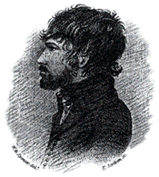
|
| Jeremiah Brandreth |
In 1817 a small number of half-starved labourers, stockingers and weavers
met in the White Horse Inn in Pentrich and made plans
for a march on London. This it was believed would gather support as it went and
the intention was that it would turn into a mass uprising to topple the
Government. The leader was Jeremiah Brandreth. It may well be that the planning
of the uprising was largely the work of an agent-provocateur, a shadowy figure
often referred to as Oliver the Spy. His job was to join and gain the confidence
of groups of political dissidents and then foment ‘subversive’ activity. The
authorities would be alerted and poised ready to catch those involved and make
an example of them.
The threat of internal unrest and rebellion could then be used as
the excuse to strengthen political repression. In 1817 Habeas Corpus (the right
to no imprisonment without a trial) was suspended while the Seditious Meetings
Act was intended to suppress all organisations committed to political reform.
Both the Government and local magistrates in the industrial districts made
systematic use of spies and infiltrators in radical movements. Snippets of
information about their activities filtered out from time to time and aroused
considerable concern even among those not necessarily supportive of radical or
democratic causes. Ironically the Government argued that these measures were required in order to maintain the much vaunted
liberties of the ‘free-born Englishman’. The half-starved wretches of
town and country wondered what on earth these so-called liberties actually
were.
The working class
was in a state of ferment. There was extreme economic distress, large-scale
unemployment especially in the textile and iron-manufacturing trades and
soaring inflation – all the ingredients that understandably led many to seek
extreme measures to change their political
and economic situation. In the post-war depression starving miners went
on strike in Somerset, the North-east and the Black Country. The Luddites of
the East Midlands, Yorkshire and Lancashire engaged in strikes and sabotage as
a way of fighting against the reduction of wages and the loss of jobs
associated with the introduction of new machinery, particularly in the textile
and hosiery industries.
While working people did not necessarily win all these disputes,
they were groping towards an understanding that they could rely only on their
own solidarity and collective action as a class. They also learned that the law
was not an impartial institution. Their experiences taught them that the courts
were presided over by men sympathetic only to the interests of the rich and
powerful. They dispensed ‘justice’ according
to their own narrow class viewpoint and used the armed might of the State,
particularly the yeomanry, to back up their determination to keep those they
considered to be the ‘unwashed masses’ in their place. They were incensed when
such people took action, fighting for a living wage and to keep jobs,
especially when these struggles were associated with demands for some say in
political matters. This was an affront to the traditional right of the rich and
powerful to abuse and exploit the poor and expect them to be grateful for the
experience.
In Nottinghamshire and Derbyshire distress was greatest among what
were known as the hand-workers, especially those in the textile and hosiery
industries who owned or hired their simple tools and machines. They were proud
of their skills and saw their livelihoods being threatened by the loss of jobs
which came from the replacement of handicraft work by labour-saving machinery.
On 9 June 1817 two
hundred, perhaps a maximum of three hundred men, mostly stockingers, quarrymen,
iron workers and a few agricultural labourers, gathered at Pentrich, muttering
angrily about changing economic forces over which they had no control. They had
a few ancient firearms, blunderbusses and pikes, scythes and bludgeons. They trudged off in the dark and the
pouring rain intent on covering the 14 miles to Nottingham during the
night. The rain literally had a dampening effect on them and their morale, and
ones and twos held back in the darkness and then went home. En route the
marchers called at farms and houses demanding arms and support. At one such
dwelling where they were told in no uncertain terms to clear off. Brandreth,
who was a loose cannon, was so angry that he foolishly fired a shot through a
window and killed a farm servant.
This did little to reinvigorate the
flagging spirits but Brandreth had invented some verses which he insisted they
should sing lustily as they went along. One of them went like this:
Every man his skill must try, He must turn out and not deny; No bloody soldier must he dread, He must turn out and fight for bread.
The time is come you plainly see
The government opposed must be.
Brandreth was just about the only person in the soaking-wet party who believed
that there was a purpose to the mission. He himself was utterly convinced that
the authorities would abandon Nottingham as soon as they knew the insurgents
were on their way, that tens of thousands would rise up all over the land and
the government in London would be forced to give in to their demands. He was in
touch with other disaffected groups elsewhere, for example around the
Huddersfield district of West Yorkshire, and he was sure that they would
likewise march on London, gathering support as they went. He tried to boost the
dejected feelings of his followers by promises of roast beef and ale but he was
careful enough not to say when.
So they proceeded towards Nottingham managing to make a considerable
amount of noise. But when dawn broke they became only too aware that they were
wet through, hungry, most were frightened and those that were left were
demoralized, since it was evident that many of their number had slipped away in
the dark. Brandreth became even more volatile
and threatened to shoot anyone who, as he put it, deserted. When a small
force of hussars came in sight at Eastwood, outside Nottingham, most of the
marchers simply dropped whatever weapons they had and ran. They were mainly
rounded up within a few hours. The `Pentrich Uprising’ was something of a fiasco.
The Government was determined to make an example of the Pentrich
rebels. Thirty-five men were tried at Derby accused of treason and levying war
against the King. The reality was that they were half-starved, insecure and
desperate to find a way to put bread on the table. They saw the rich and the
powerful and their political and legal system as their oppressors. They were of
course absolutely right in this but there was no way in which the system that
oppressed them was going to be overthrown by a ragged handful of desperate men
with such callow leadership.
The authorities
fastidiously handpicked a jury whose members could be depended upon to view the
evidence in the way the Government required. Only two lawyers were allowed to
appear for the Defence. The Prosecution was represented by no less than ten.
Some of the accused were pardoned and some transported but Brandreth and two
others were hung, drawn and quartered at Derby. Great care was taken to insure
that the doings of Oliver the Spy never reached the proceedings of the court.
In his summing up, the judge loftily and self-righteously declared, "A
crime is no less a crime because the man who
commits it is poor." With his class background he certainly wasn’t going to utter the words, "A crime
is often less a crime because the man who commits it is rich."
Warming to his theme, he snarled at the defendants, "Your object was to
wade through the blood of your countrymen, to extinguish the law and the
constitution of your country, and to sacrifice the property, the liberties, and
the lives of your fellow subjects, to confusion, anarchy and the most complete
tyranny."
The poet Shelley was outraged by the Government’s draconian reaction
to this localised and abortive uprising. He knew that, for all its
shortcomings, Pentrich was indicative of the widespread and justified
grievances of working people assailed by economic
forces over which they had no control and ruled by a tyrannical Government
who regarded them with callous contempt. He used the event to write a pamphlet with the curious subtitle of We pity
the Plumage but forget the Dying Bird. In this he points to the day
of national mourning called for the death of Princess Charlotte. She was the
only daughter of the future George IV, one of the greatest wastrels ever to
occupy the British throne. As such the Princess had never wanted for anything
in her life but equally had never done anything useful either. Shelley
contrasts this event with the treatment meted out to starving working men.
It was just a
couple of years later in 1819 that Shelley produced what is probably his
angriest work. This was ‘The Masque of
Anarchy’, a long, complicated poem with the well-known line, / met
murder on the way, he had a mask like Castlereagh. Viscount Castlereagh was
a notoriously reactionary cabinet minister in the Conservative government under
Lord Liverpool which came into office in 1816. It is clear that he and other
leading government figures were prepared to stoop to any measures in order to
maintain the power of their class. This determination to prevent
root-and-branch change is something of which all socialists must take note. No
ruling class in history ever voluntarily gave
up its power. It is a testament to the strength of the ideas controlled
by the ruling class both then and also now that many people are astonished when
the State sheds its veneer of ‘impartiality’ and resorts to naked force in
order to maintain its power.
In modern advanced capitalist countries the ruling class greatly
prefers to govern through institutions which it controls but which give the
illusion that the adult population has full and democratic control over the
decision-making processes. While nothing could be further from the truth, as
socialists we still have to defend those democratic advances which were won by
our predecessors in the movement. At the same time we must always be aware that
those gains were made out of struggles when the balance of class forces
temporarily favoured the organisations of the working class. What the ruling
class is forced to concede at one stage, it will grab back ruthlessly later if
working people and their organisations are not vigilant and determined. To
safeguard such gains and as the only way to move on to the effective defence
and development of the interests of ordinary working people and their families,
the movement needs to be equipped with a socialist programme. Such a programme
has to absorb the lessons of past struggles.

